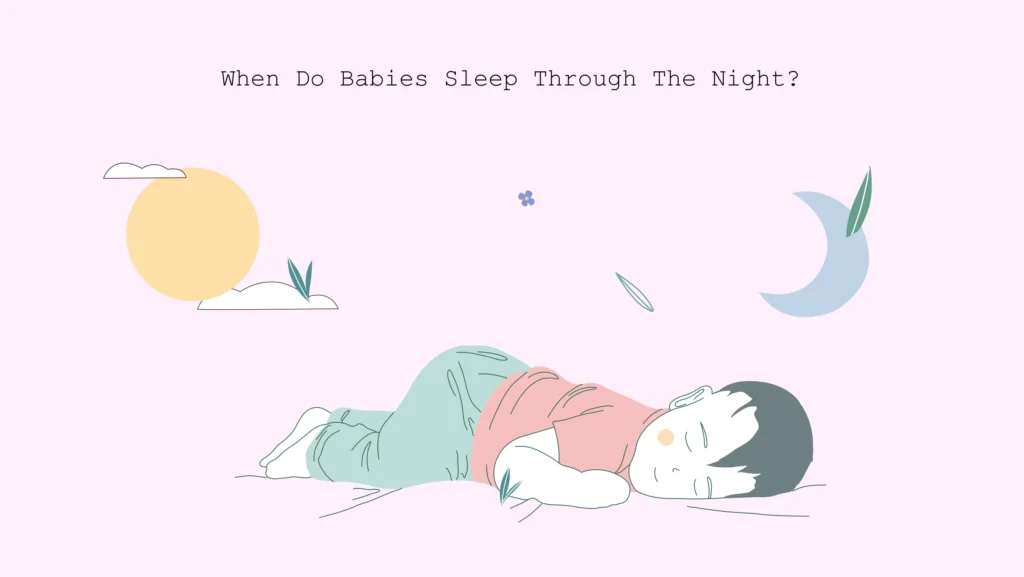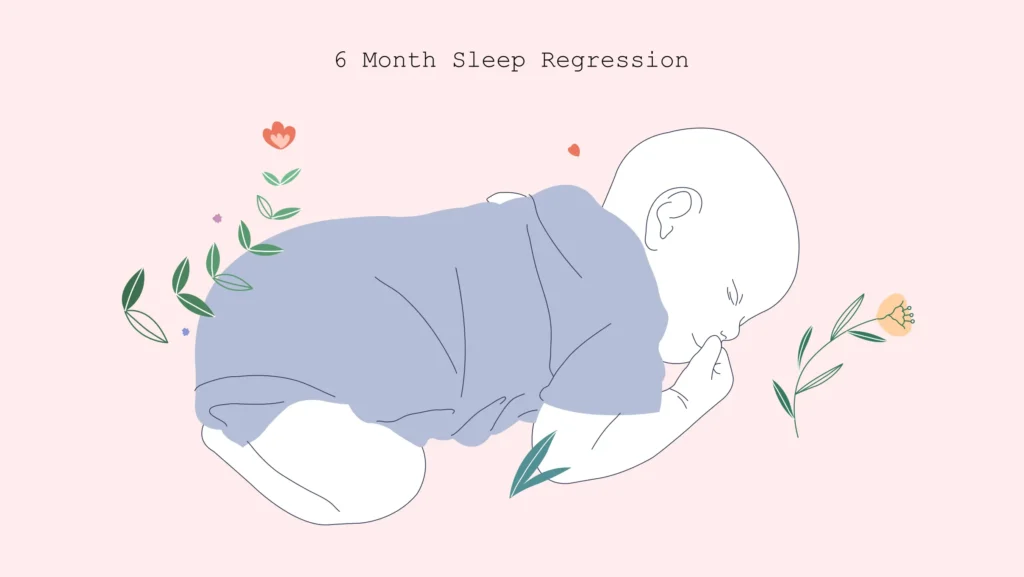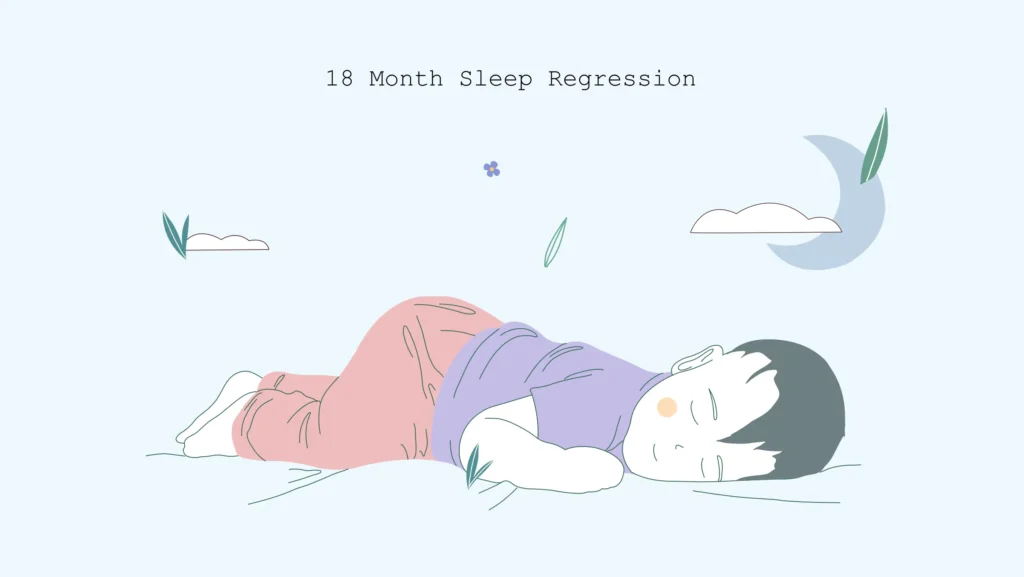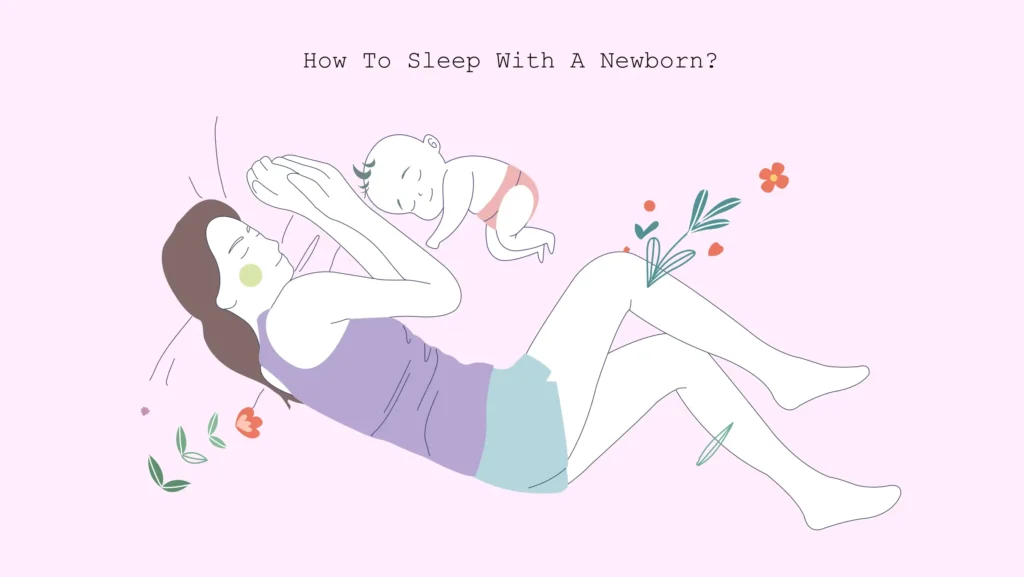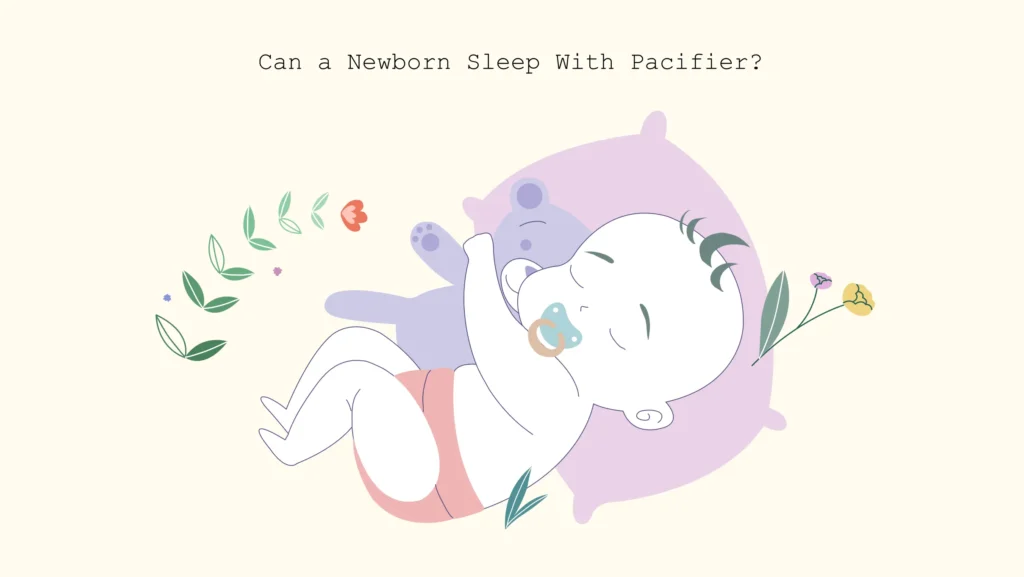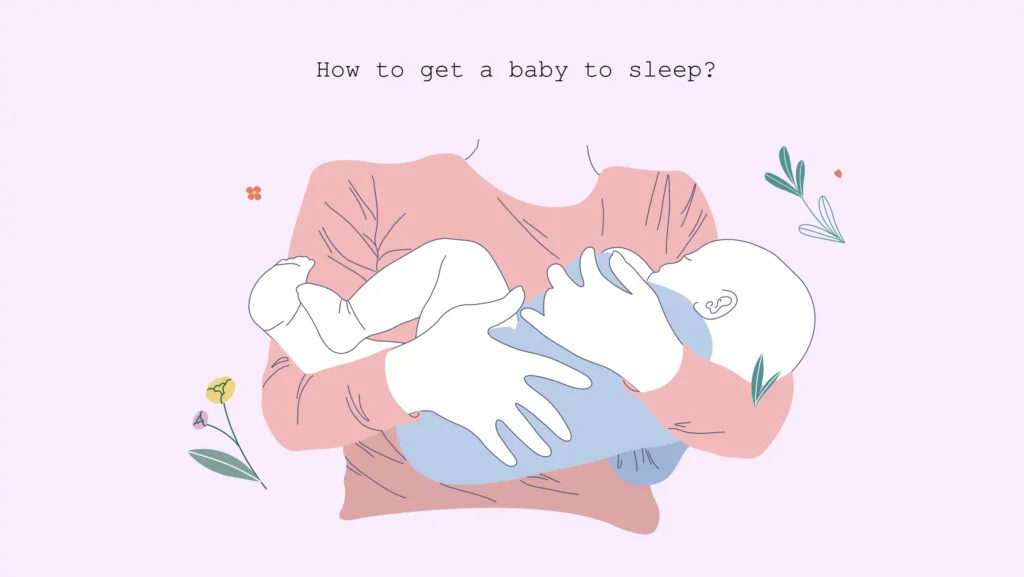4 Month Sleep Regression
Written by

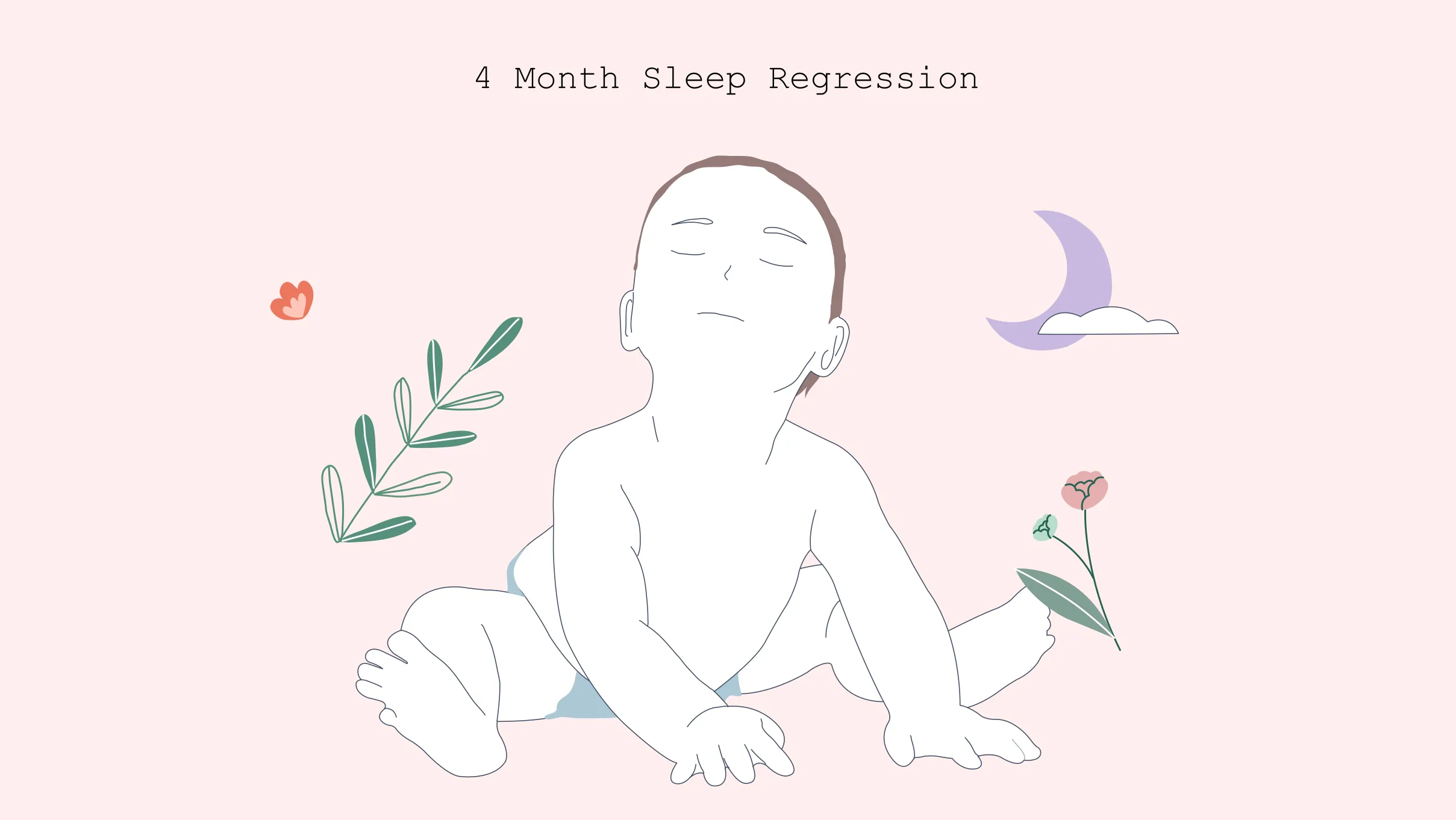
Is your little one about four months old? Has your baby started waking up at odd times during the night and has difficulty going back to sleep? Well, this is not abnormal. It is known as 4-month sleep regression. What is 4-month sleep regression? It is a period where your baby’s sleep patterns shift because they are either going through a growth spurt or a sign of a developing brain.
Now, your little one is adapting to the new environment and learning new skills as each day progresses. This can be slightly frustrating for the child, and it tends to affect sleep patterns. Sleep regressions are common in the fourth month. But it can be challenging for new parents because if your baby is awake, so are you! Therefore today, Sleep Guides India will tell you everything about 4-month-old sleep regression so you can easily get through this phase. Read on!
What are the signs?
If your little one has been sleeping well throughout the night and suddenly is not, it may not be sleep regression. However, the deteriorating sleep pattern starts when the baby is about four months old. Some of the other signs of sleep regression include;
- Crankiness or fussiness
- Waking up multiple times at night
- Not napping too much
- Changes in food intake
Now, don’t be alarmed. Sleep regression is good news: your little one is engaging and adapting to its new environment.
Why do babies have a 4-month sleep regression?
Sleep regression in babies occurs because they are going through a transition period where their sleep pattern is changing, and they are learning new things. There is still so much unknown about the nuances associated with sleep, and even paediatric sleep experts haven’t figured out one leading cause for this 4-month-old infant sleep regression.
What Are Symptoms of a 4-Month Sleep Regression?
Some of the main symptoms of a 4-month sleep regression include;
- Unable to fall asleep
- Waking up multiple times at night
- Increase crying upon waking up
- Fussiness
- Reduced sleep time
How long does the 4-month sleep regression last?
Sleep regression can differ from one child to another. While some may cope sooner, other babies may take slightly longer.
When does it start?
The 4-month sleep regression usually begins by the time your baby is three or four months old when the baby starts a sleep cycle between light and deep, similar to how we have. But unlike our four stages of sleep, they only have two. The change and maturation of the sleep cycle can be the reason for sleep regression. It also leads to multiple awakenings at night and shorter naps compared to before. However, not all babies experience sleep disruptions. So, if your first child didn’t undergo a period of sleep regression, but the second one does, it’s normal.
When does it end?
How long does 4-month sleep regression last? Sleep regressions last anywhere between two to six weeks. You can improve sleep after this period by developing healthy sleep habits, as given below.
Tips to overcome the 4-month-old sleep regression
How to survive 4-month sleep regression? We bring you all the tips that can help you out!
1. Establish a consistent bedtime routine
Just like we need good sleep habits and a consistent bedtime, your child needs it too. Consistent pre-bedtime and pre-nap time routines can be good for making your baby understand that it is now time to sleep. Some of the bedtime routine tips include;
- Feed your baby
- Give the little one a bath
- Change the diapers or pyjamas
- You can read a story or sing a lullaby
Having a proper routine also creates a sense of security. While not sleeping through the night can be a problem in the beginning, having a routine can help you out.
2. Encourage babies to fall asleep in their sleep space
One of the best ways to help your baby enjoy a good night’s rest without disruptions is to encourage them to fall asleep on their own. If your baby is used to sleeping in your arms, you can always give them time to adjust.
3. Give them space to practise falling asleep on their own
One of the best ways to help give some independence and reduce sleep regression is to provide them with space to practise falling asleep on their own. If your baby needs external help, such as rocking or feeding, then you can use the same tricks to help them before putting them inside their crib.
4. Keep the bedroom dark
Blackout curtains are a great way to keep the bedroom dark. Because lights guide our body’s internal clock and can keep you awake and darkness puts you to sleep. This can be the same with babies too. A dark room can also help lengthen naps and sleep time.
5. Pay attention to waking windows
Unlike adults, babies don’t usually fall asleep even if they are overtired. Instead, they may cry or become fussy. Therefore, it is important to look for cues that show if they are ready to go to bed. This can include yawning, rubbing their eyes, and even fussing. Because if you miss this window of opportunity, babies get overtired, which makes it harder to fall asleep.
6. Don’t rush in
Don’t rush in if you notice that your little one has woken up. Instead, give them a few minutes to themselves. And once you reach out to the baby, make sure you make it quick, whether feeding or changing the diaper. Here, keep the lights low and don’t indulge in any talk or play. Even lights from your phones can interrupt the baby. So, keep all the devices away.
7. Evaluate hunger
Sometimes, when the baby wakes up, your first instinct may be to feed them. But before you do that, evaluate carefully if your little one is hungry or wants to feed to soothe them back to sleep. Also, during this time, children are experiencing a growth spurt. Therefore, they may be truly hungry. So, evaluate the situation carefully.
Also, ensure you feed your baby before putting them to bed, as it can prevent nighttime awakenings.
8. Be patient
Don’t lose your patience. Remember, your child is going through something different and many changes, which can get slightly frustrating. So, continue using the best soothing practices so your baby can adjust to the changes.
9. Introduce The Drowsy But Awake Method
You put your baby in the crib and offer verbal or physical reassurance while sitting close by. It can be stroking their faces, keeping your hands on your baby, or talking soothingly to the little one. Remember, if it doesn’t work and your baby starts crying, it is okay that you pick them up or hold them and put them to sleep. These methods work but can also take time. So, be patient and keep at it. In due time, your baby will be able to sleep on its own.
10. Keep Them Active During The Day
Your little one is learning new skills, and there are chances that they are trying them at night, which interferes with their sleep. So, curb these nighttime practise sessions by giving them time to rehearse rolling over or sitting up during the day.
11. Adjust Your Routine Accordingly
When your baby is going through this transitioning phase, the best thing you can do is to adjust your routine accordingly so you don’t miss out on sleep and your energy levels remain high. Even when you are planning your day, take your baby’s wake and sleep time into consideration.
12. Ask For Help
Your baby needs sleep, but so do you! You cannot take care of your little one when you are tired. It is okay to turn to your family or friends for help at times like these. You can also discuss it with your partner to help you out.
13. Extra Love
Finally, ensure you shower your little one with all the love and affection. A sense of warmth and love is imparted when you hug, cuddle, or kiss your baby. And this is essential as they are growing and developing.
Conclusion
Remember, a sleep regression will only last for a few weeks. So as you try to do your best, there are chances that your baby still won’t enjoy a slumber throughout the night. But as soon as your baby sleeps, make sure you catch up on the zzz’s too, as you need it to keep your energy levels up. And ensure you follow a consistent bedtime routine for the best outcome. Finally, if you have concerns, don’t hesitate to speak with your doctor.
FAQs
Do all babies have a 4-month sleep regression?
No, it is not a compulsion that all babies must undergo a period of sleep regression when they are four months old. While it is common, some babies skip it. Apart from four months, sleep regressions also occur at eight, 10, 12, and 18 months.
Can I prevent 4-month sleep regression?
No, you cannot prevent it as it occurs due to the natural changes that your little one is going through. All you can do is make the transition period comfortable and develop a sleep routine that helps them sleep well once the sleep regression period is over.
Why is my 4-month-old baby not sleeping?
It can be due to sleep regression. Take a look at the signs and symptoms given in the above article. However, if that’s not the case, make sure you speak with your doctor.
Do the 4 months of sleep regression pass?
Yes, it will pass in about two to six weeks.
My 4-month-old baby won’t sleep unless held. What should I do?
You can try a few tricks, such as;
- Don’t keep your baby awake for too long and put them down as soon as they are sleepy
- Let your baby sleep in a cosy and a warm place
- Use white noise or soothing music
- Stroke your baby’s face
- You can keep your hands on your baby after you put them down in the crib
- You can try using a pacifier
people like this article
Written by



